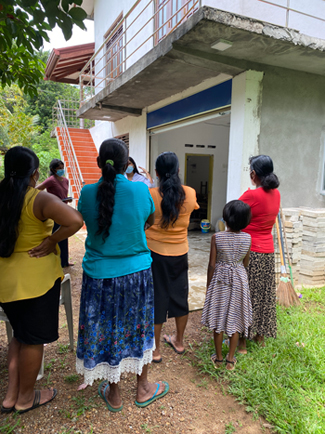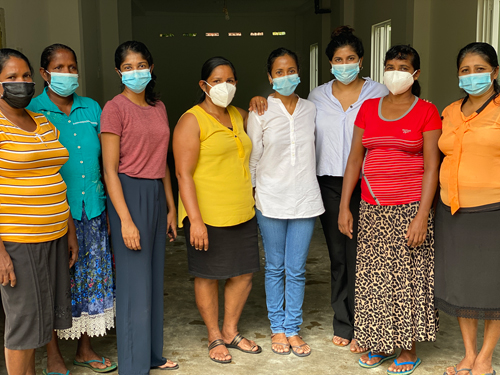By women for women
Tackling the stigma around sexual and reproductive health has been the focus of the Arka Initiative, founded in 2018.

Looking forward to Adithi:
Looking to bring about tangible change by creating a safe space for men and women to deal with the issues they face concerning their sexual and reproductive health (SRH), Arka has reached out to thousands within and outside Colombo through interactive SRH and sex education sessions and workshops at various institutions, including schools. It also runs several other projects, and has set up an online directory of obstetricians and gynaecologists and a website that enables confidential advice and conversations with their medical team.
Their latest effort is Adithi–a project to produce and distribute low-cost sanitary pads.
“Adithi began a few months ago, and our aim is to produce the cheapest pads in the market, manufactured by women, for women. This is a concept Arka envisioned, to provide grassroots communities with access to sexual and reproductive health needs, while empowering women at the same time,” said project head Kemalie Herath, a final year medical student and mentor at the Arka Initiative.
Arka was a recipient of a grant from various entities, including The Pad Project – the 2019 Academy Award winner for Best Documentary Short, “Period. End of Sentence.” With money from the grant, the organisation was able to purchase a semi-automatic pad machine from Saral Designs at Mumbai in India.
They have had to contend with delays caused by the pandemic and are currently waiting for the pad machine to arrive from India, Kemalie said. Meanwhile they have set up the factory in Pareigama in Mathugama, educating the women who will be working in the factory and getting the necessary logistical and administrative matters sorted.

The Arka members with their team
“All women working for Adithi will be given detailed training on how to carry out production. We have already set up training sessions with the Indian team who will be supplying the machine, and have chemical engineers and technicians to help guide the women,” Kemalie explains.
Right now five women in the Pareigama village are awaiting the orientation programme and once the machine arrives, they will begin producing, packaging and distributing the pads in Mathugama, Kalutara and Colombo.
M.D. Lanka, a mother of seven, is excited about the project. It was she who found the building, located five kilometres away from Pareigama.
“I have high hopes for this project, because the sanitary pads that are in the market right now are not affordable. A lot of the women in our village still use and reuse cloth. So we want to make and sell pads at an affordable price for the women in our village first, and then sell them to women elsewhere,” Lanka told the Sunday Times.
Lanka is also interested in getting more women involved in this project as she feels the women in their village do not have much knowledge on sexual and reproductive health. “We hope that the Adithi project can educate more women on the importance of this topic, while providing a source of income for us,” she said.
Their long term goal is to take Adithi islandwide and provide needy women with access to pads, Kemalie explains. “To do this, we humbly request support in the form of sponsoring sanitary pads for one woman’s menstrual cycle for six months, or sponsoring the community at large. All donations received have really helped Arka grow and given us opportunities to take up bigger responsibilities such as Adithi. With community support and the response to the product, we hope Adithi will become a brand that will be a part of all women’s lives,” she adds.
Their biggest challenge, she says, is working with those from conservative backgrounds who are reluctant to diverge from cultural and religious norms. “Involving men in SRH conversations is also a big challenge. SRH has been stigmatised for as long as we can remember, and it isn’t easy having a conversation on a topic many feel uncomfortable being a part of. So we hope to address these issues, and hopefully make an impact,” she added.
For more on the Adithi project and the Arka Initiative see: https://www.daraz.lk/shop/the-arka-initiative/.


